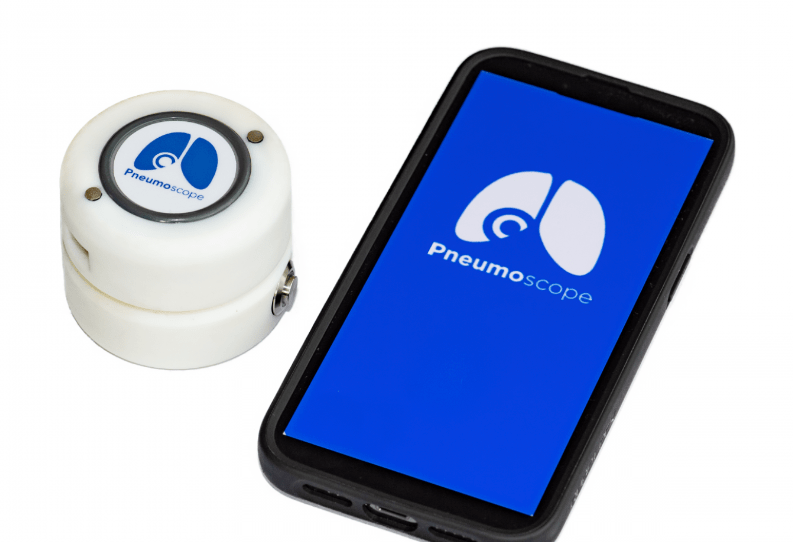ven, Avr 28th 2023

(SwissTech) Every year, 2.5 million people worldwide die from pneumonia, according to the organization Our World in Data. Another respiratory condition – asthma – is the most common chronic disease among children. The effective diagnosis and management of respiratory diseases is therefore hugely important, as we all saw during the COVID-19 pandemic.
Currently, a diagnosis is made by auscultation of the lungs with a stethoscope and functional tests, including listening to breathing. Only a doctor can perform these tests, as they require specialist expertise.
To help doctors make a better diagnosis, in 2018 a research group was created by the University Hospitals of Geneva (HUG) in partnership with EPFL and Terre des hommes.
Named Pneumoscope, its objective is to develop an intelligent digital stethoscope capable of interpreting lung sounds. This rapid, inexpensive and non-invasive screening device does not require any specific medical knowledge so can also be used by nurses or patients.
Primarily intended for detecting asthma attacks and pneumonia, the stethoscope is also useful for COVID-19 patients, according the website of the Swiss start-up. The 3-in-1 medical device integrates a digital stethoscope, oximeter and thermometer, driven by artificial intelligence.
The smart stethoscope records lung auscultation sounds and recognizes in real time acoustic signatures of respiratory diseases thanks to AI algorithms. The information is transmitted through a user-friendly interface on a smartphone or tablet to aid diagnosis of respiratory symptoms and assess the risk to the patient. The AI algorithms were developed at EPFL using a clinical database of over 100,000 lung sounds from adults and children with COVID-19, pneumonia, asthma, etc.
The hardware, which consists of a small box, was developed in collaboration with several teams of researchers from Geneva’s university of applied engineering sciences (HEPIA). The researchers developed low-power electronics to process the signals from the acoustic sensors, store them and transmit them wirelessly to a smartphone.
In parallel, an algorithm was created to separate breathing sounds from heart signals and extract them from other noise sources. Additional temperature and oximetry sensors were then added to further refine diagnosis.

By making it easier for healthcare professionals to provide an accurate diagnosis, this innovative product aims both to improve patient care and the quality of diagnoses and to optimise healthcare costs through telemedicine.
The prototype by the Pneumoscope research group is now close to completion and just needs to complete the final technical and clinical validation phase to be market-ready.
Cet article a été reproduit avec l'autorisation de SwissTech.
